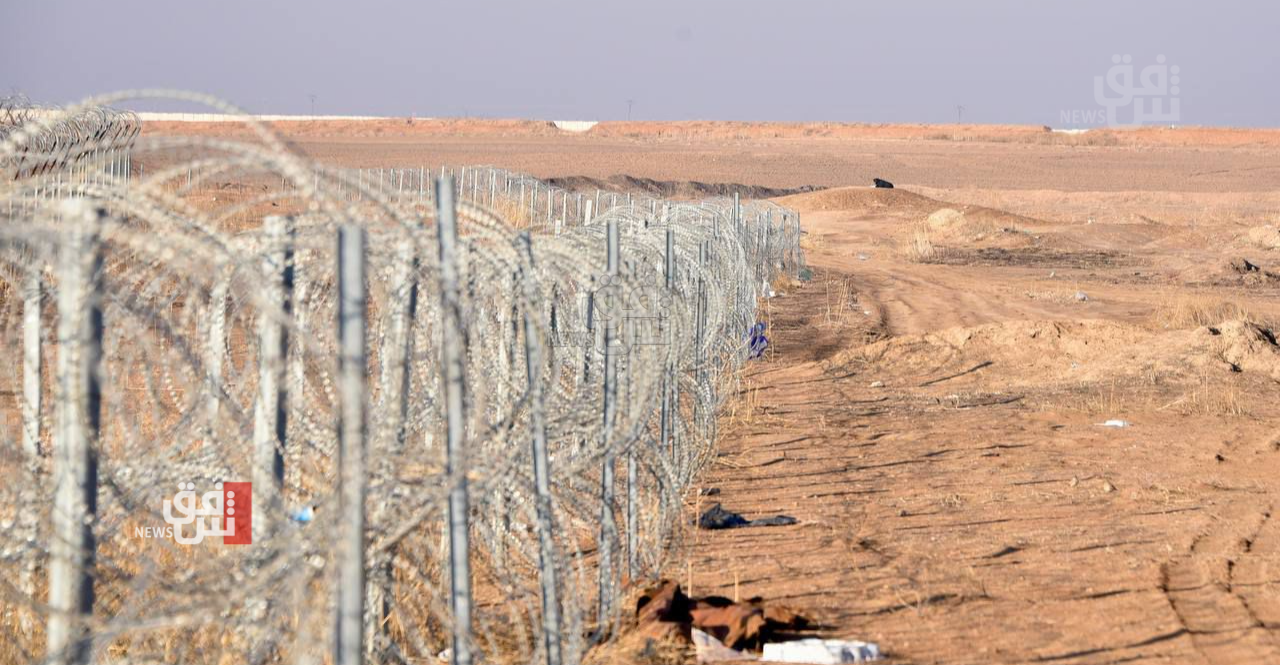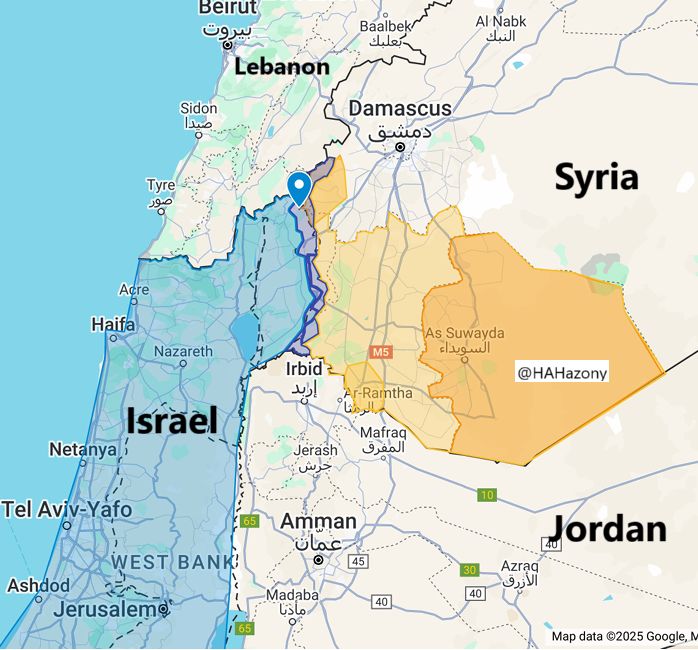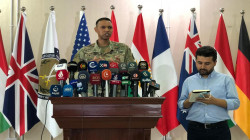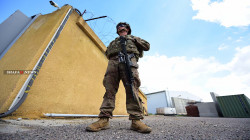Israel's expansion in Syria: A looming threat to Iraq

Shafaq News/ Israel’s military operations in Syria have far gone beyond a security mission, becoming a major geopolitical shift whose effects would be felt across the Middle East.
In recent weeks, Israeli airstrikes have repeatedly struck military targets in southern Syria, while Israeli forces have expanded their movements in Daraa and Quneitra.
Israeli Prime Minister Benjamin Netanyahu reaffirmed Israel’s long-term plans, stating, “The Israeli army intends to remain in Mount Hermon and the surrounding buffer zones for an indefinite period,” fueling speculation that Israel is working to redraw the security landscape in Syria, potentially laying the groundwork for further expansion.
A New Security Reality: Israel’s Strategic Goals in Syria
Israeli Defense Minister Israel Katz has emphasized that Israel will not allow southern Syria to become “another southern Lebanon,” where Iran-backed factions like Hezbollah have established a stronghold. Israel justifies its intensified military operations as a “preventive measure to keep hostile forces from securing a foothold near its borders.”
Observers argue that Israel is using Syria’s instability to establish a security buffer, leveraging the conflict to expand its strategic depth. US recognition of Israel’s sovereignty over the Golan Heights in 2019 has further solidified its presence.
More recently, Israel has introduced economic and social programs in the occupied Golan, such as recruiting Druze workers from Syria, a move seen as an effort to deepen its control over the region.
Meanwhile, protests have erupted in
Daraa and Suwayda, where demonstrators waving Syrian revolution and Palestinian
flags have rejected Netanyahu’s call for the complete withdrawal of Syrian
military forces. Activists warn that Israel’s objectives extend beyond a
temporary military presence, potentially reshaping the governance of southern
Syria.
‘Greater Israel’ Theory: Myth or Reality?
Many in Iraq see Israel’s military expansion in Syria as part of a broader plan. Some analysts reference “Zionist” texts that describe Israel’s potential borders stretching "from the Nile to the Euphrates," though Israeli officials dismiss these claims as misinterpretations.
In addition, recent remarks from Israeli Finance Minister Bezalel Smotrich, who suggested Israel’s borders should extend to Damascus, have reinforced suspicions that Israel’s ambitions go beyond defensive security measures.
While Israel insists its operations in Syria are aimed at countering Iranian threats, many in Baghdad fear that a precedent is being set, where Israel gradually establishes de facto control over strategic areas.
Iraq and Israel: A History of Conflict
Iraq has opposed Israel since its establishment in 1948, taking part in the 1948, 1967, and 1973 Arab-Israeli wars. Under Saddam Hussein, tensions escalated further, culminating in Israel’s 1981 airstrike on Iraq’s Tammuz nuclear reactor during Operation Opera.
During the 1991 Gulf War, Iraq launched 39 Scud missiles at Tel Aviv and Haifa. More recently, in 2022, the Iraqi Parliament passed a law criminalizing any normalization with Israel, reinforcing Iraq’s policy of non-recognition.
The hostility resurfaced in 2023 when Iraqi Shiite factions launched rockets and drones at Israel in response to the Gaza war. While Baghdad did not officially endorse these attacks, it struggled to prevent them, exposing Iraq’s limited control over armed factions.
Could Israel’s Military Expansion Extend Toward Iraq?
Israeli airstrikes in Deir ez-Zor and Al-Bukamal—key hubs for Iran’s supply lines between Iraq, Syria, and Lebanon—indicate an effort to disrupt Tehran’s regional influence. Analysts believe Rukban refugee camp, located at the Syria-Iraq-Jordan border triangle, is being used as an Israeli intelligence hub.
Some reports suggest Israel is working to establish a direct security presence near Iraq’s border for the first time. While Israeli forces have not formally entered Iraqi territory, security analysts, including Sarmard Al-Bayati, warn that Iraq lacks the intelligence capabilities to track Israeli military movements effectively.
“Iraq does not have the tools to monitor Israeli movements in the region compared to those available to the Global Coalition,” Al-Bayati told Shafaq News.
Israel’s preemptive strike doctrine, which focuses on neutralizing threats before they materialize, raises fears that future Israeli operations could extend into Iraq if Iran-backed groups use Iraqi territory as a launchpad for attacks.
Despite its strategic location, Iraq lacks the military and intelligence capacity to effectively counter an expanding Israeli presence. Unlike Israel, which has advanced surveillance satellites, electronic warfare systems, and a modern air force, Iraq’s security forces rely primarily on drones and thermal cameras for border monitoring.
Jordan, a key US ally, maintains a strong security partnership with Israel, making it difficult for Iraq to counterbalance Israel’s growing presence in the region. Intelligence-sharing between Jordan and Israel means that any militant activity near Iraq’s western border could be quickly relayed to Israeli forces, increasing the likelihood of preemptive Israeli strikes.
On the other hand, Iran remains a central player in Iraq’s security affairs, with deep influence over Shiite factions such as Kataib Hezbollah, Asaib Ahl al-Haq, and the Badr Organization. These groups serve as Iran’s primary allies for countering US and Israeli influence in the region.
Israeli airstrikes in Syria have frequently targeted Iranian military assets, with Tehran viewing these attacks as direct provocations. If Israeli forces push closer to Iraq’s borders, Iran’s allies in Iraq may retaliate, further escalating the conflict.
Iraq, caught in the middle of this power struggle, faces the challenge of navigating a worsening confrontation between Israel and Iran.
Baghdad’s Possible Responses
Faced with Israel’s expansion, Iraq is balancing military preparedness with diplomatic pressure. The Arab League recently held an emergency session, condemning Israel’s military incursions into Syria and calling for an immediate withdrawal. However, divisions among Arab states have limited the impact of these efforts.
At home, Iraqi security forces have intercepted rockets launched toward Israel, trying to prevent provocations that could invite Israeli retaliation. Prime Minister Mohammed Shia al-Sudani has reaffirmed that only the Iraqi government can decide on matters of war, effectively banning unauthorized attacks on Israel.
Kurdish President Nechirvan Barzani has echoed this sentiment, stating that "Iraq must distance itself from external conflicts and focus on limiting the weapons of militias."
This complicated geopolitical situation begs the question: Will Israel’s ambitions stop at Syria, or will it set its sights on Iraq next?





